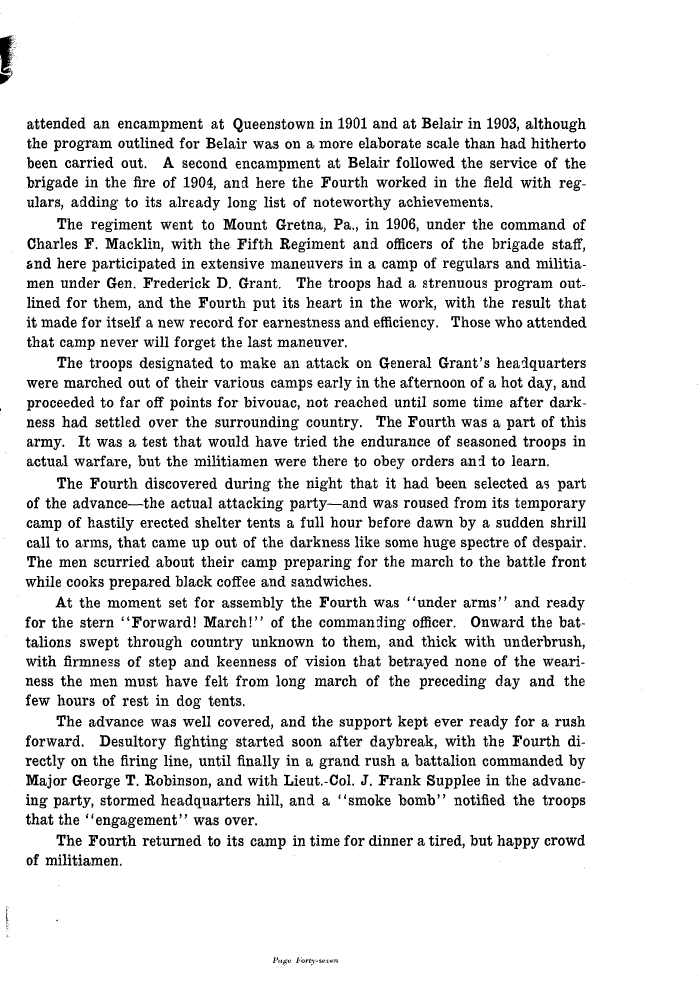 |
||||
 |
||||
| attended an encampment at Queenstown in 1901 and at Belair in 1903, although the program outlined for Belair was on a more elaborate scale than had hitherto been carried out. A second encampment at Belair followed the service of the brigade in the fire of 1904, and here the Fourth worked in the field with regulars, adding to its already long list of noteworthy achievements. The regiment went to Mount Gretna, Pa., in 1906, under the command of Charles F. Macklin, with the Fifth Regiment and officers of the brigade staff, and here participated in extensive maneuvers in a camp of regulars and militiamen under Gen. Frederick D. Grant. The troops had a strenuous program outlined for them, and the Fourth put its heart in the work, with the result that it made for itself a new record for earnestness and efficiency. Those who attended that camp never will forget the last maneuver. The troops designated to make an attack on General Grant's headquarters were marched out of their various camps early in the afternoon of a hot day, and proceeded to far off points for bivouac, not reached until some time after darkness had settled over the surrounding country. The Fourth was a part of this army. It was a test that would have tried the endurance of seasoned troops in actual warfare, but the militiamen were there to obey orders and to learn. The Fourth discovered during the night that it had been selected as part of the advance—the actual attacking party—and was roused from its temporary camp of hastily erected shelter tents a full hour before dawn by a sudden shrill call to arms, that came up out of the darkness like some huge spectre of despair. The men scurried about their camp preparing for the march to the battle front while cooks prepared black coffee and sandwiches. At the moment set for assembly the Fourth was "under arms" and ready for the stern "Forward! March!" of the commanding officer. Onward the battalions swept through country unknown to them, and thick with underbrush, with firmness of step and keenness of vision that betrayed none of the weariness the men must have felt from long march of the preceding day and the few hours of rest in dog tents. The advance was well covered, and the support kept ever ready for a rush forward. Desultory fighting started soon after daybreak, with the Fourth directly on the firing line, until finally in a grand rush a battalion commanded by Major George T. Robinson, and with Lieut.-Col. J. Frank Supplee in the advancing party, stormed headquarters hill, and a "smoke bomb" notified the troops that the "engagement" was over. The Fourth returned to its camp in time for dinner a tired, but happy crowd of militiamen. Page forty-sewn |